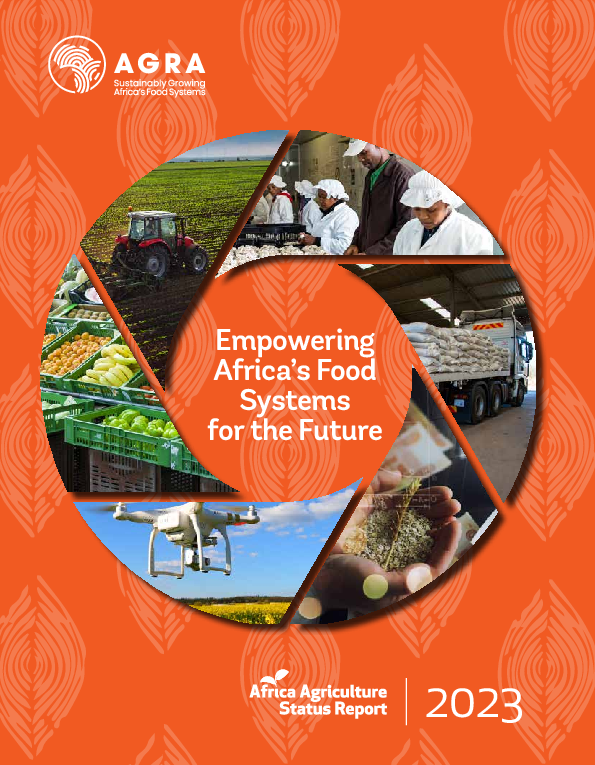- Share this article
- Subscribe to our newsletter
Africa Agriculture Status Report 2023
Despite being home to nearly 60 per cent of the world’s uncultivated arable land, Africa remains a net food importer. It spends billions annually to meet its food demands.
The 2023 Africa Agriculture Status Report (AASR23), entitled “Empowering Africa’s Food Systems”, underscores the need to address the challenges affecting African food systems given the imminent threat of climate change and the consequences of inaction. The publication was launched by the Alliance for a Green Revolution in Africa (AGRA) in September 2023.
The report explores the structural failures hindering the transformation of Africa’s food systems so that they can support sustainable and healthy diets for all. It examines the current state of food systems in Africa, including challenges and opportunities, and draws on a new framework of indicators for benchmarking progress on transformation produced by the Food Systems Countdown Initiative (FSCI). This year’s report also uses the United Nations Sustainable Development Goals (SDGs) and the Comprehensive African Agriculture Development Program (CAADP) framework indicators to assess overall progress towards global and continental commitments.
Out of the 50 indicators outlined in FSCI framework, sub-Saharan African countries are performing worse than the global average across 32 indicators, mostly related to diet, nutrition, and health. This is accentuated by the fact that up to 650 million Africans – 50 per cent of the continent’s population – lack economic or physical access to sufficient food to meet their minimum daily needs. On the other hand, sub-Saharan African countries are performing better than the global average in the remaining 18 indicators, including those relating to greenhouse gas (GHG) emissions from food systems, and biosphere integrity.
The 2014 Malabo Declaration commitment by African governments to triple intra-African trade in agricultural commodities and services by 2025 is appearing increasingly out-of-reach, as such trade continues to dwindle from its peak in 2013 to less than 15 per cent in 2022. However, if fully implemented, the African Continental Free Trade Area (AfCFTA) could raise household income by 9 per cent by 2035, while lifting 50 million people out of extreme poverty. Africa could see foreign direct investment increase by between 111 per cent and 159 per cent under the AfCFTA.
(AGRF/AGRA/ile)
Read more on the website of the African Food System Forum (AGRF)and download the report from the website of the Alliance for a Green Revolution in Africa





Add a comment
Be the First to Comment